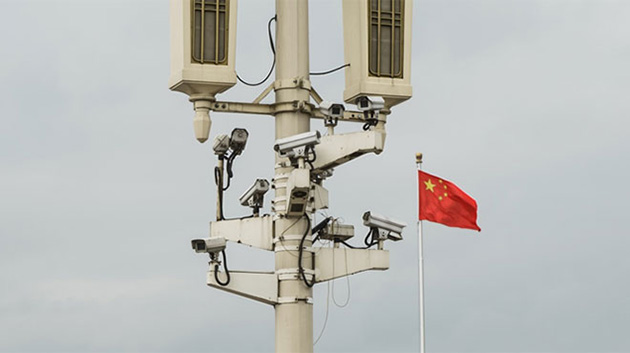A Chinese Artist Created a Film Using Surveillance Footage
Japan Must Not Be a Surveillance State like China
Key points in this article
- A fictional film was created in China by putting together footage taken from surveillance cameras.
- China routinely monitors its citizens through surveillance cameras and Internet censorship.
- Japan, which is on the way to becoming a surveillance society, should learn from the bad example set by China.
A Chinese artist created an interesting film titled “Dragonfly Eyes” using video surveillance footage.
The film depicts a sad love story of a dairy farm technician who falls in love with a woman working in the same farm as he watches her through surveillance cameras.
A renowned Chinese artist, Xu Bing and his staff downloaded surveillance footage from the websites of internet security firms in China, worked through about 7,000 hours of video images and edited them down to about 80 minutes to make a story.
Mr. Xu said, “This is a method of the present, but it also presages future artistic methods.” He decided to make this film in the hope of creating an entirely new type of contemporary art.
In an interview with the Wall Street Journal (the August 11th issue), Mr. Xu said, “I think the entire world has become a gigantic film studio…In the past, it was the government using it. But now, it’s expanded from the government to everyone.”
Surveillance Cameras Are Everywhere in China
As Mr. Xu said in the interview that China has installed the largest number of surveillance cameras in the world. Since 2010, the number of surveillance cameras in China has increased by 20 percent annually. It is said that there are already about 8,000 cameras across the country.
In China, you can find surveillance cameras not only in public places like roads and stations, but also at restaurants, schools and yoga studios. Some video streams contain quite private footage of people taking a swimming lesson or receiving facial aesthetic care.
Regardless of whether they are in a public or private place, the Chinese government has installed surveillance cameras everywhere, insisting that the cameras help prevent crimes and maintain social stability, and the Chinese citizens seem to accept the situation.
Internet Surveillance Has Become Reality and Expanded into Personal Data of Major Companies
It is the Chinese government that controls the surveillance system. On August 11th, China’s State Internet Information Office (SIIO) decided to investigate the three major Chinese internet service providers on suspicion that some users were giving out information that could threaten national security. This kind of investigation is quite unusual.
These three providers manage WeChat (Wexin), Weibo, and some major online bulletin board services that contain public opinions on the internet in China. It is highly likely that more than 30,000 internet police officers have censored the messages in the services and suspended many accounts of users who had posted criticism of the Chinese government. (the August 12th issue of Nihon Keizai Shinbun)
In addition to internet censorship like this, the Chinese government has obtained databases managed by private companies like major IT firm, Alibaba.com, trying to use all available data to monitor and control its people.
Japan Must not Become a Surveillance State like China
A surveillance system like this can happen in Japan. We do not realize we are being watched in everyday life, but there are more than 3 million surveillance cameras that keep us under observation.
Further, Japan has introduced the so-called “My Number” system designed to control its people with 12-digit figures. The My Number contains personal information including family makeup, employment record, income, savings, and even a history of visiting hospitals. This means that the system gives the national authority free access to personal information.
Few Japanese people want to live in a surveillance state like China. It is important to ensure safety and security, but we must raise our voice to prevent the Japanese government from strengthening its surveillance of people.



















